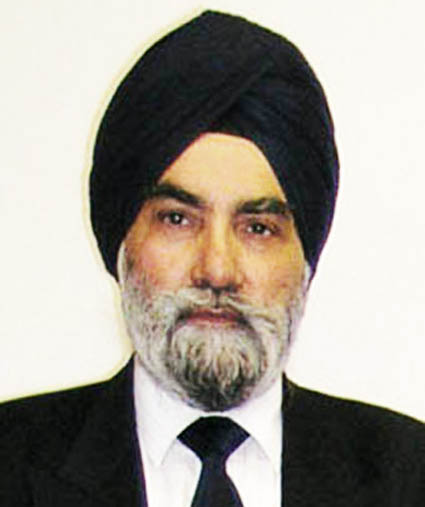Manifestation of Theo-Political Sovereignty of Sri Akal Takht Sahib

When the Sikhs do not have a sovereign state of their own, the Golden Temple, with its surrounding complex []]Darbar Sahib], continuously retains its theo-political status, which may be suppressed by the political power, compromised by individuals or questioned by politicians, but which remains and never can be extinguished, for, it is sui generis and inalienable, and imprescriptible. (Sirdar Kapur Singh)
Sirdar Kapur Singh in his famous essay, The Golden Temple: Its Theo-political Status, published in 1998 by SGPC, states that Sri Darbar Sahib has a theo-political status which is not a matter of concession by a political state, but is a right, sui generis []]unique and embedded in collective Sikh psyche].
The topic last week was that the Jathedars at Sri Akal Sahib have an opportunity to bring about far reaching overdue reforms in Panthic affairs as they deliberate on the current issues before them.
A system which enabled one family to dominate the main Panthic institutions for decades: the Sikh political party, the Shromani Akali Dal, the Shromani Gurdwara Parbandhak Committee (SGPC) and, through SGPC, the appointment and dismissal of Jathedars of Akal Takht Sahib, cannot be in accordance with Sikhi principles nor commensurate with the Sovereignty of the Takht established by Guru Hargobind Sahib.
The system needs a major review by top level Gurmat scholars in the Panth and the diaspora as directed by the Five Singh Sahibans at Akal Takht Sahib and those from other Takhts in India. For some years, I have been involved with reviews of State of the Panth papers produced by the Sikh Research Institute, USA. These are based on diaspora Sikh surveys and are also highly Sikhi-educational. They show the process which can be adopted at global level to seek Panthic view about major Gurmat-based reforms of Panthic institutions and selection of senior office holders.
Global Sikh confidence in SGPC and SAD has reached a point when only major reforms can restore the institutions at grassroots level. It is not just the personalities involved but the whole system and the processes which matter. Individuals will reap the punishment, the seeds of which they sowed themselves when in office in state administration or in Sikh institutions including Sri Akal Takht Sahib.
In the Sikhi tradition one does not stand by when in a position to raise a voice against wrong-doing and injustice. In the Court of the Guru and Khalsa Panth, those who were directly involved and those who stood by without opposing when in a position to do so, both are answerable. The responsibility is at both, individual and collective levels. .
Most Sikhs today, including diaspora next generations, do not know the background to the Gurdwaras Act of 1925 and later legislation. Sikhs do not understand why state courts or administrations should have any say in Sikh affairs. Such outside control is contrary to the sovereign position of the Akal Takht.
The Takht cannot be subjected to any outside temporal administration of Panjab state nor that of Delhi. Whenever attempts have been made to do that in history, the Miri-Piri (temporal-spiritual) power of the Takht has manifested itself through the Panth as witnessed by the election of two independent Sikh MPs by the Panth and near annihilation of one family led Shromani Akal Dal. The Miri-Piri Shakti of Sri Akal Takht Sahib will always manifest Itself through the Khalsa Panth when provoked by external circumstances, for example, injustice in society, and existential threats to the Panth.
Gurmukh Singh OBE
Principal Civil Servant retd (UK)